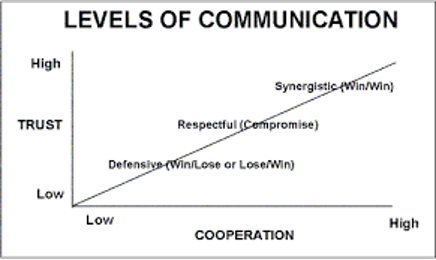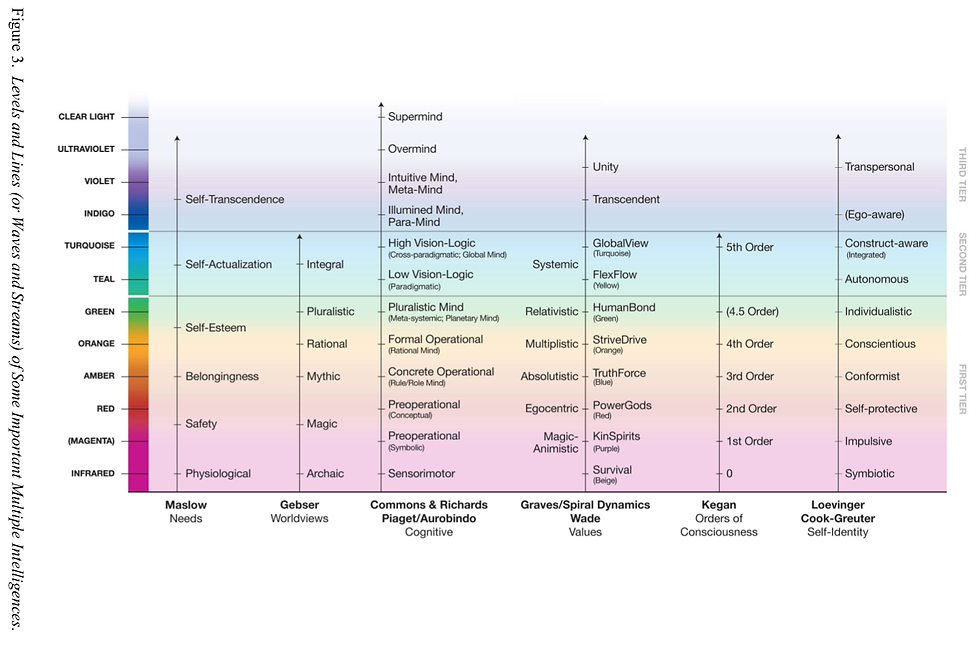Changing My Habits (Pt. 3)
- ferruccijess

- Nov 19, 2020
- 5 min read
Reading through The 7 Habits of Highly Effective People by Stephen Covey was getting easier with every page. I had started to incorporate the previous habits into my life, and I could already see improvements. Working through the third part was much easier than I had anticipated at the very beginning of the book.
The previous habits discussed
were what would lead to private victories for the reader. However, to be an efficient person, one must also have public victories. Although the private victories set your mindset and keep your focus centered on being efficient, humanity thrives on public interactions. It is equally as important to connect with others and communicate effectively, as I began to discover in this part of Covey’s book.
It’s Not a Competition
Many people have a funny way of turning every little thing into a competition. Who can drink their water faster? How did you do on the exam? You’re a janitor? Well, I'm a CEO.

Something that we forget to keEp in mind is that while
some things are a competition, like athletics, life is not a competition. Everyone goes at their own pace and tries to achieve their own personal victories. While Part III compares these to public victories, it’s still not a “victory.” You won’t get a trophy for being a nice person, or even a participation ribbon. It’s more important to come out of a situation and maintain your relationships with others than to be “better” than everyone else.
Codependence and Interdependence
In the interlude to the fourth habit, Covey brings up an interesting point about a man’s work seminars. This man doesn’t enjoy going to seminars because he is so worried about his wife interrogating him about it. Later, we find out that his wife has good reason: he met her at a seminar while he was married to someone else. Covey thinks for a little bit, and then he drops a knowledge bomb. He says that you can’t just open someone’s head and rewire their attitude. The next thing he says resonated with me, he said, “you can’t talk your way out of problems you behave yourself into.”
This was very profound and made me consider how many times I’ve tried to talk my way out of things that I did that I knew weren’t right. A rolling stop through a stop sign where I got pulled over. I knew the truth, I did roll through, but I was late for class, the sun was shining in my eyes and I thought it was a yield sign. Many other situations arise at work, when I didn’t put the paperwork in the right drawer and my boss asked me where it was. Instead of fessing up, I blamed “whoever closed last night” and reprinted a new receipt and found the old copy of the order to give her. Situations like these remind me to be accountable for existing on the same plane as others. It is equally important to be considerate of others as it is to think of your own needs.
The Emotional Bank Account
Covey uses an interesting metaphor in this section to describe one’s and other’s emotions. He says that there are six things that fill up your emotional bank account. These are understanding the individual, attending to the little things, keeping commitments, clarifying expectations, showing personal integrity, and apologizing sincerely when you make a withdrawal. The first of the things can be described in a story about a dad who doesn’t like baseball. One summer, he took his son to each major league baseball team play one game. The trip took six weeks, and cost a lot of money; however, when Covey asked him if he liked baseball that much the man replied “no, but I love my son that much.”
Covey uses stories to describe many of the transactions of this bank account. The thing that stood out to me the most for “Attending to the Little Things” was when Covey said that small discourtesies and acts of disrespect make large withdrawals that impact the relationships with other people. Additionally, making promises or commitments that you don’t follow through on make major withdrawals. You must be able to cultivate trust and build lasting connections with people.
Clarifying assumptions is also important because when you assume, forgive my language, you make an ass out of you and me.” This is such an essential quote because when you jump to conclusions, it leads to actions, thoughts, and words that probably wouldn’t have been said if things were clarified in the first place.
Showing personal integrity is essential to building trust with others. This key celebrates your character and ethic. Integrity is conforming reality to your words and making them match your actions. For example, when Covey would lose his temper in the house, his son would pause and say, “do you love me?” This question is soul searching and his behavior made his son question his love because why was his dad being impatient with him was altering his son’s reality of how much his dad loved him.
Another important withdrawal occurs when one doesn’t apologize for their actions. It takes a great deal of character strength to apologize sincerely and from the heart. This shows people that they have value to the person who acted wrongly and mends relationships. Leo Roskin taught “it is the weak who are cruel. Gentleness can only be expected from the strong.” The profoundness of this rings true, as those who are cruel are weak and insecure. They lack the empathy needed to speak freely from the heart and consider the feelings of others.
Diving into the Fourth Habit

Covey tells us the importance of negotiation. He states that interdependence begins with negotiations. You want to think “win/win” when both parties walk away with mutual benefits. There are many paradigms of negotiation, variations of win and lose combinations that promote the outcome of any situation. Win/lose is the opposite, and it’s the authoritarian approach that basically states, sorry but I am getting my way. Using the other habits learned, and the values of interdependence, this mindset is detrimental to a negotiation. Thinking win/win takes courage and consideration to create
Understanding Leads to Being Understood
Diagnosing a problem before the solution is prescribed is essential, as a doctor doesn’t look at a patient and say, “I already know what you have! Let’s try this.” The difference in truly understanding a problem can make a huge difference in providing a remedy for the real problem at hand. It creates a bond between the people trying to figure everything out together, as a team, instead of as separate entities wrapped up in their own worlds. Understanding the problem creates listening skills that are applicable to every aspect of your life.
Synergize to Synthesize

Synergizing represents connecting to others and working together. This is the key to forming bonds with other people and leading to public victories. That way, everyone is working towards a common goal. You must communicate effectively and consider all the ideas that may or may not help you reach your goals. Synergy represents a collective work of many people. An important concept is respecting the people you work with and breaking stereotypes and clichés to reach complete openness with your group to promote creative flow. This will get the job done effectively, as many minds are better than one.
Final Thoughts
To wrap up this post, my thoughts and feelings are very strong with Part III of The 7 Habits of Highly Effective People. I believe that your interactions help formulate your experiences and that you need to work to make them the best. Private victories are great, however public appearances can lead to private victories. Their supportive roles in the lives of efficient people can improve life for those who you surround yourself with.







Comments